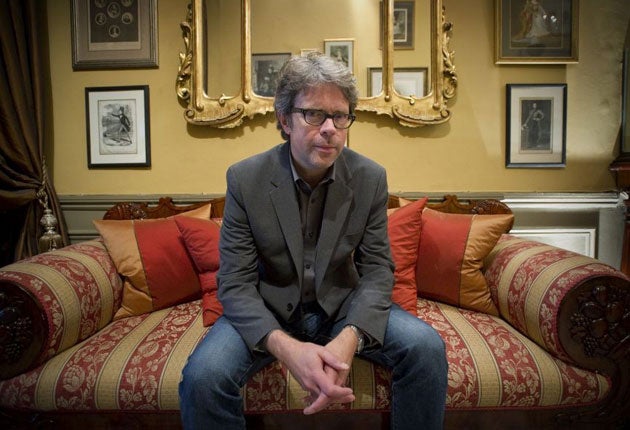Modern novels: They're big, but they're not always clever
When did the modern novel get so long and unwieldy? Sometimes the best things come in small packages, says Arifa Akbar

The biggest publishing event of last year saw Jonathan Franzen's doorstopper, Freedom, garlanded as the "great American novel" by one half of the world and hailed as a modern-day War and Peace by the other. Yet after nine years of gestation and the most fastidious of working methods (the earplugs, the blinds, the disabling of internet portals), one wondered whether, if Franzen had given us something far less Proustian in length, the critical reception would have been quite so breathless.
What if he had produced a sleek, 150-page novella? The idea that a work of fiction so short and sweet could gain the same critical attention as a 562-page tome is an unfamiliar one, even though several contemporary novels might have been greatly improved by more rigorous editing.
Rosie Blau, a 2010 Booker Prize judge, bemoaned the long and lumbering works on the long list, saying she was "shocked [by] how many writers and editors allowed into print redundant adjectives, clichés and overwritten narratives... 'Too long' was my most frequent note."
Literary novels appear to have universalised their length to at least 300 pages. It is a rare publishing event when a respected author produces something dinkier. Ian McEwan did it in 2007 with On Chesil Beach, his story of a disastrous wedding night; in 2010 Bret Easton Ellis gave us Imperial Bedrooms, his first novel in five years, which concluded in 250 pages and was all the more arresting for it.
In the case of McEwan, the critics appeared to view On Chesil Beach as a "smaller" work in more than a literal sense. In the case of Ellis, some reviewers equated his short novel with a brattish, monosyllabic and puerile sensibility. I wonder if, in both cases, there was some level of unconscious judgement of a book by its cover.
Perhaps the idea that small is less substantial comes from the criteria for prizes such as the Booker, for which short stories cannot be nominated (although interconnected stories can be). The Booker rule might produce a misguided "longer" sensibility. Who can forget Hilary Mantel's 2009 Booker-winning blockbuster, Wolf Hall – although, it should be noted, it was as great in quality as it was, at 672 pages, in length.
Or maybe the assumption that a small novel cannot compare in complexity, characterisation or brilliance to its longer equivalents predates the Booker. After The Great Gatsby failed to sell, F Scott Fitzgerald wrote to a friend: "It was too short. Remember this. Never write a book under 60,000 words."
If Fitzgerald were alive today, that word count would look more like 120,000. Why? Storytelling has always been an organic exercise – some stories take less time to tell than others but are no less accomplished or profound. JD Salinger proved this with The Catcher in the Rye, Thomas Pynchon with The Crying of Lot 49, Fitzgerald with Gatsby.
Other writers have worked best in small packages, creating worlds sometimes more complex and sophisticated than in a novel – Somerset Maugham and Daphne du Maurier built their reputations on the small form and Alice Munro and Lorrie Moore continue to do so. But the novella appears to be a fast-vanishing form and the short story is, to some degree, seen as a starters' medium, training wheels for authors who will progress to a fully-fledged novel.
Anne Enright has spoken of the satisfaction that comes from writing short stories which "become themselves even as you write them: they end once they have attained their natural state." Novels too should end this way.
None of this is to argue against the production of modern-day War and Peace epics. Length, when a book does not drag, is a wonderful thing. Think of a night at the theatre: some three-hour plays whizz by; others leave you thinking wistfully of the journey home.
It is wise to remember that in literature, as in life, it really isn't size that matters.
Join our commenting forum
Join thought-provoking conversations, follow other Independent readers and see their replies
Comments